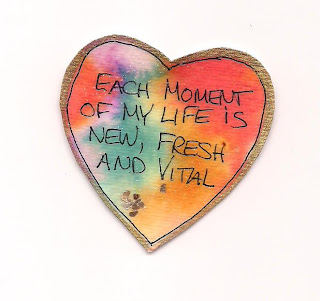What's on Your Mind This Morning?
What did you wake up thinking about this morning? Were you calm or stressed as you thought about it?
Whichever way we start--calm or stressed-- it usually builds momentum and determines the course of our day. It's just the way our brains work--stress begets stress, and calm begets calm.
Self-Calming Activities Provide the Cure
Like you, I have to figure out how to get myself out of that overwhelmed feeling when a bout of life hits. I have a low tolerance for discomfort. I hate feeling overwhelmed, and I'm very motivated to get out of it as fast as I can.
To return to being clear and focused sooner, I've learned to engage in self-calming activities when overwhelmed. It's a simple, effective strategy for redirecting my focus, and I make good and reasoned choices when I'm calm.
Heart Rate over 100? Kiss Your Ability to Think Clearly Good-Bye!
John Gottman, a professor of psychology at the University of Washington, and co-founder and co-director of the Gottman Institute, studies couples to determine what makes for harmonious relationships and what gets in the way. Use of self-calming techniques is part of the answer to what makes for more harmonious relationships.
As part of his research, Gottman takes physiological recordings, including heart rate and blood pressure readings to determine how stressed or relaxed couples are while talking to each other.
Gottman has shown when our heart rate goes above 100 in non-exercise situations, such as when engaged in an argument with a spouse, our brains go diffuse. In other words, our ability to problem-solve or think clearly flies out the window, and fear and irrationality move in.
In order to bring their heart rates down so they can think more clearly and problem solve more effectively, Gottman teaches couples to pause and practice self-calming techniques when their emotions cause their heart rate to raise above 100.
You Know Best What Calms You
What are self-calming activities for you? You know best what will calm and relax you. It's anything you can engage in that redirects your attention away from the stress to a calmer state. This activity can take as little as 5-10 minutes, or it can be sleeping on it overnight.
Try one of the self-calming activities below, or use one of your own making, and see what happens. Life is too short to live it tied up in knots. Take steps to improve your life daily.
Self-Calming Activities
Take a Walk
Take a Break
Take a Nap
Take a Shower
Take a Bath
Take Action
Laugh with Friends
Play a Game
Read a Book
Write in a Journal
Brew some Tea
Nourish your Body
Make a List
Talk with a Friend
Get the Facts
Take a step
Put it down
Do Something Else
Sleep on it
Give it Time
Let it Go
Ask for Help or Advice
Be Calm
Need Help?
Do you need help moving yourself out of feeling overwhelmed by your situation into a calmer, more productive and peaceful state of mind?
For more than 25 years, Susan Meyerott has been helping people lighten up and step over invisible barriers to change one step at a time. She speaks to your heart, puts you at ease, and makes changing easier than ever before. Contact Susan to schedule one or on-going life change coaching sessions.




















